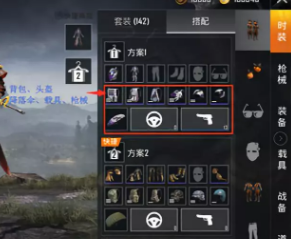cryptocurrency crypto currencies- Top Knowledge
Samsung has lowered its mobile phone production target to 229 million units next year. Samsung Electronics has set a mobile phone production target for 2025, and plans to produce about 229 million smartphones. This goal includes 179.4 million units produced by ourselves and 49.9 million units produced by joint design and manufacturing (JDM). Compared with the initial plan of 237 million units in October this year, this target has been lowered by 7-8 million units, only slightly higher than the shipment forecast for the whole year of 2024.The tenth batch of centralized procurement of drugs organized by the state will be opened in Shanghai today (12th), and the bid will be selected. It is understood that this collection involves a total of 62 drugs and 263 product specifications, which is the highest in all previous collections. Covers a variety of therapeutic fields such as hypertension, diabetes, tumor, cardiovascular and cerebrovascular diseases, infection, mental illness, and electrolyte supplementation. (CCTV Finance)Citigroup slightly lowered South Korea's GDP growth forecast to 1.5% next year. It is expected that the Bank of Korea will cut interest rates next month. Citigroup released a report saying that considering the worse economic sentiment in South Korea this month, it slightly lowered its GDP forecast for this year and next year by 0.1 percentage point to 2.1% and 1.5% respectively. The bank slightly lowered Korea's GDP growth forecast for the last quarter of this year by 0.1 percentage point to rise by 0.3% quarterly, and raised its GDP growth forecast for the first quarter of next year by 0.1 percentage point to rise by 0.6% quarterly. Looking forward to the first quarter of next year, the bank expects South Korea to adopt a combination of expansionary policies, including the Bank of Korea's expected interest rate cut to 2.75% in mid-January, and the government's expected additional budget of 30 trillion won (equivalent to about 1.1% of GDP next year). It is expected that the Bank of Korea will cut interest rates by 25BP each in January, April, July and October next year, and the final interest rate is expected to be 2%.
Afternoon comments on Hong Kong stocks: Hang Seng Index rose by 1.72%, Hang Seng Technology Index rose by 2.55%, Hong Kong stocks closed at noon, Hang Seng Index rose by 1.72% and Hang Seng Technology Index rose by 2.55%. Chinese brokerage stocks and consumer stocks were among the top gainers, with China Merchants Securities, Mengniu Dairy and Tongcheng Travel up over 7% and over 5% respectively.Market News: NVIDIA has increased its recruitment in China, focusing on artificial intelligence to drive cars.Iflytek and other robot technology companies have a registered capital of 30 million yuan. According to Tianyancha App, Anhui Lingdong General Robot Technology Co., Ltd. was recently established with Hu Guoping as the legal representative and a registered capital of 30 million yuan. Its business scope includes industrial robot manufacturing, industrial robot sales, intelligent robot research and development, electrical equipment sales, computer software and hardware and auxiliary equipment retail, information system integration services, intelligent robot sales, mechanical equipment leasing, etc. According to shareholder information, the company is jointly held by Anhui Xunfei Yunchuang Technology Co., Ltd., a subsidiary of Iflytek (002230), Anhui Yanzhi Technology Co., Ltd. and Anhui Lingji Wanwu Technology Partnership (Limited Partnership).
Extremely Yue insiders: Xia Yiping still stays in the company's on-site office and is seeking financing. I learned from the inside of Extremely Yue Automobile that on the morning of December 12, Extreme Yue CEO Xia Yiping appeared in the company's headquarters office. Xia Yiping said that he appeared first to prove to employees that he had not run away, to tide over the difficulties with the company, and second to communicate with employees face to face. "His main task at present is financing, and he is also actively contacting investors for help." Insiders revealed to reporters. (The Paper)South Korea will gradually reduce the rice planting area to cope with the decline in demand. The Ministry of Agriculture, Food and Rural Affairs of South Korea said on Thursday that South Korea will strive to gradually reduce the rice field area to solve the problem of declining demand and adopt environmentally-friendly planting methods. Due to the change of diet structure, the annual rice consumption of Koreans has decreased, and the per capita rice consumption has dropped significantly from 61 kg in 2018 to 56.4 kg in 2023. At present, the total area of rice fields in South Korea is about 698,000 hectares, and the government says it plans to reduce the area of rice fields by 80,000 hectares next year. In addition, by 2029, the planting area of environmentally friendly rice will be expanded from 35,000 hectares this year to 68,000 hectares. The government will also allocate 244 billion won (about 170 million US dollars) to subsidize farms that grow strategic crops other than rice, such as wheat, beans and barley, which is an increase from 186.5 billion won this year.The weighted share price index of Taiwan Stock Exchange closed 0.6% higher at 23,046.80 points.
Strategy guide
12-13
Strategy guide 12-13
Strategy guide
12-13


























